Writing
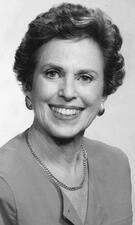
Sallyann Amdur Sack
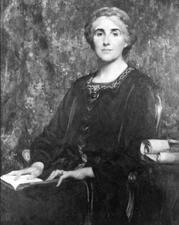
Nina Ruth Davis Salaman
Nina Salaman was a well-regarded Hebraist, known especially for her translations of medieval Hebrew poetry, at a time when Jewish scholarship in Europe was a male preserve. In addition to her translations, she published historical and critical essays, book reviews, and an anthology of Jewish readings for children, as well as poetry of her own.
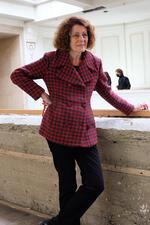
Rachel Salamander
Rachel Salamander is a writer, scholar, editor, and publisher. Born in 1949 in a DP camp in Germany, she has written and published multiple works about German Jewry and DP camps after World War II. In 1982, Salamander established the Literaturhandlung in Munich, a prominent bookshop and meeting place specializing in Jewish literature.
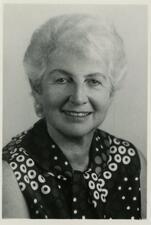
Eva Salber
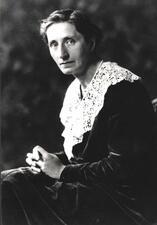
Alice Salomon
Alice Salomon was an educator, feminist, economist, and international activist who was one of the pioneers of the emerging field of professional social work in Germany in the early 20th century. In 1925 she was among the founders of the German Academy for Women’s Social and Educational Work, and she later served as the first president of the International Committee of Schools of Social Work.
Sharon Salzberg
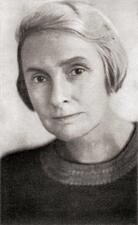
Jessie Ethel Sampter
Jessie Sampter was an important Zionist activist, writer, and educator. As an influential member of Hadassah, the woman’s Zionist organization, she advocated for an inclusive vision of Zionism. Putting her ideas into practice, she moved to Palestine in 1919. Although Sampter’s disability and non-normative family structure did not align with Zionist ideals of strong, healthy bodies, she championed Zionism, though not always uncritically.

Sheryl Sandberg
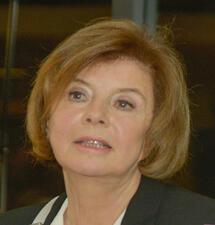
Michèle Sarde
Writer Michèle Sarde’s biographies, novels, and essays cover a wide range of themes and issues, including female literary figures, women’s equality, and the trauma of war persecutions through the lens of both the Holocaust and the Armenian genocide. She has received many awards for her work and taught at Georgetown University for over 30 years.
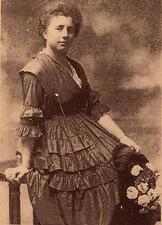
Margherita Sarfatti
Born into a wealthy Venetian Jewish family, Margherita Sarfatti joined the Socialist Party and became the art critic for the newspaper Avanti!, where she met Benito Mussolini. The two became lovers, and she followed Mussolini into the Fascist movement and helped plan the rise of the Fascists, only abandoning his cause when Mussolini embraced antisemitism in 1938.
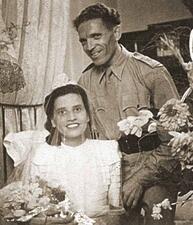
Bouena Sarfatty Garfinkle
Bouena Sarfatty Garfinkle, a Sephardi woman, risked her life over and over again to aid to her community during World War II. At a later stage in her life, Bouena’s historical-literary acumen enabled her to record Jewish life in Salonika during the twentieth century, including the devastation to her community at the hands of the Nazis.
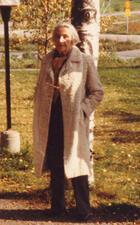
Nathalie Sarraute
Writer and lawyer Nathalie Sarraute was an innovative figure in post-World War II French literature. No longer allowed to practice law during the German occupation of France, she posed as the governess of her three daughters to hide her Jewish identity. Sarraute’s many novels and plays are characterized by an “inwardness” and an unusual lack of characters, names, and plot.
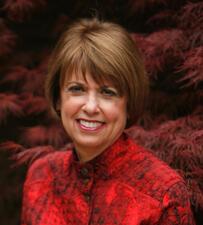
Sandy Sasso
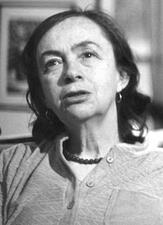
Beyle Schaechter-Gottesman
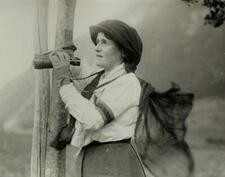
Alice Schalek
Alice Schalek first entered the public sphere at the turn of the century as the author of a well-received novel, published under the male pseudonym Paul Michaely. The first woman in Austria to become a career photojournalist and travel writer, and the first and only female member of the Austrian Kriegspressedienst (war information unit) during World War I, Schalek paved the way for careers in both photography and journalism for other women.
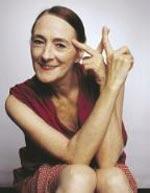
Rina Schenfeld
Dorothy Schiff
Dorothy Schiff led many lives, from debutante to social reformer, but she is best remembered as the publisher of the New York Post, the first woman to run a New York newspaper. Her publishing philosophy was simple: The Post must avoid “narrow-mindedness, prejudice, and all the things it is the business of liberals to fight.”
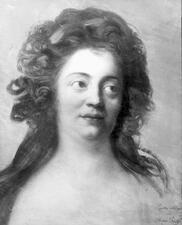
Dorothea Mendelssohn Schlegel
Dorothea Mendelssohn Schlegel was an author and editor who published work under her husband’s name that received little recognition during her lifetime. An intelligent and spirited woman, she changed her name from Brendel to Dorothea, divorced the husband her parents had chosen for her, married a controversial writer, and converted first to Protestantism in 1804 and then to Catholicism in 1808.
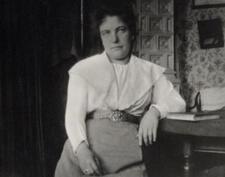
Therese Schlesinger-Eckstein
Therese Schlesinger’s life was characterized by her lifelong passion for learning and her endeavor to improve the plight of working-class women. She was a dedicated feminist who was inspired by the ideals of socialism, struggling to combine both of these political passions within the Austrian Social Democratic Party.
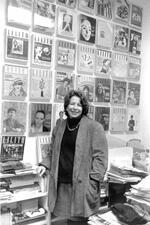
Susan Weidman Schneider
Eva Schocken
As the daughter of Salman Schocken, founder of Schocken Books, and later as editor and president, Eva Schocken pushed the publishing company to the forefront of both education and women’s studies.
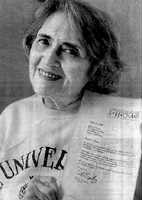
Denise Schorr
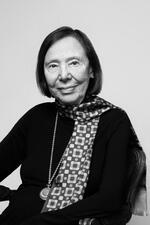
Grace Schulman
During her decades-long career as both poet and professor, Dr. Grace Schulman has received numerous awards, including the Frost Medal for Distinguished Lifetime Achievement in American Poetry. Her work has been included in numerous anthologies, and she has written extensively on her friend and mentor poet, Marianne Moore.
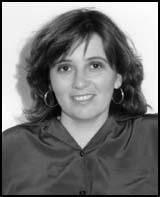
Debra L. Schultz
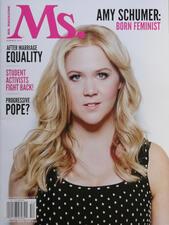
Amy Schumer
Amy Schumer is one of America’s most loved and successful comedians. Her career is built on a true riches-to-rags-to-riches story and is firmly centered on growing up in an unconventional Jewish upbringing.


